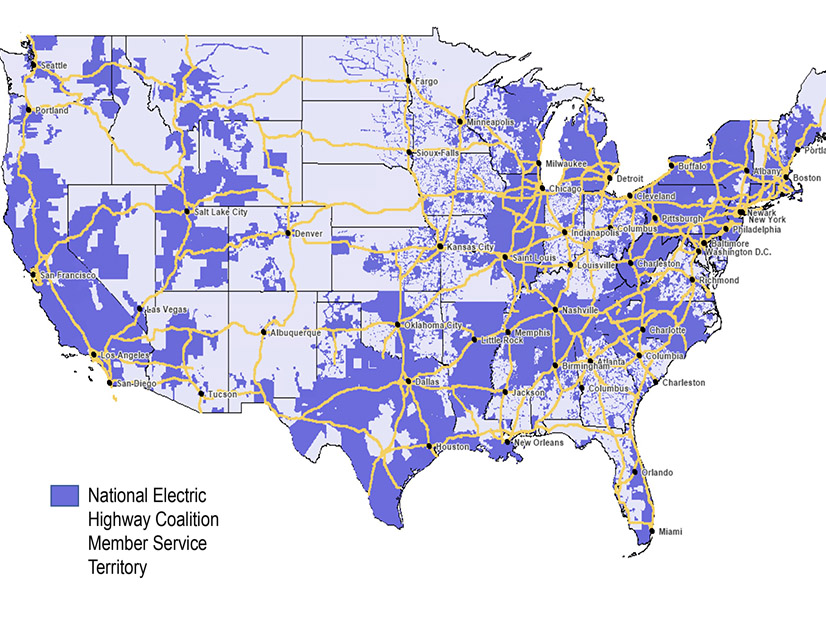
More than 50 electric utilities across the U.S. announced the creation of a national coalition Tuesday to facilitate the buildout of fast-charging stations on major highways in most states, giving electric vehicle owners the ability to travel distances by the end of 2023 without range anxiety.
The Edison Electric Institute “and our member companies are leading the clean energy transformation, and electric transportation is key to reducing carbon emissions across our economy,” EEI President Tom Kuhn said in a statement. “With the formation of the National Electric Highway Coalition, we are committed to investing in and providing the charging infrastructure necessary to facilitate electric vehicle growth and to helping alleviate any remaining customer range anxiety.”
The coalition is expected to focus initially on the nation’s interstate system.
The U.S. Department of Energy estimates there are currently about 6,800 fast-charging stations in the country and nearly 47,000 slower public charging stations. A DC fast charger can repower the batteries of many new EVs to 80% in 20 to 30 minutes, according to ChargePoint, a California-based EV infrastructure company. Older hybrid EVs may not be equipped to take the high voltage of a fast charger.
The $1.2 trillion Infrastructure Investment and Job Act, which President Biden signed Nov. 15, allocated $7.5 billion for alternative fuels, including a buildout of a national EV charging network.
EEI estimates that member utilities have already spent more than $3 billion on “customer programs and projects to deploy charging infrastructure and to accelerate electric transportation.” As of February, 31 states and D.C. had approved electric transportation filings made by 52 companies, EEI previously reported.
The organization estimates there are about 2 million EVs on the road today, less than 1/10 of the 22 million expected by 2030. It has estimated that EV drivers will spend the equivalent of about $1.20/gallon, based on average U.S. residential rates.


